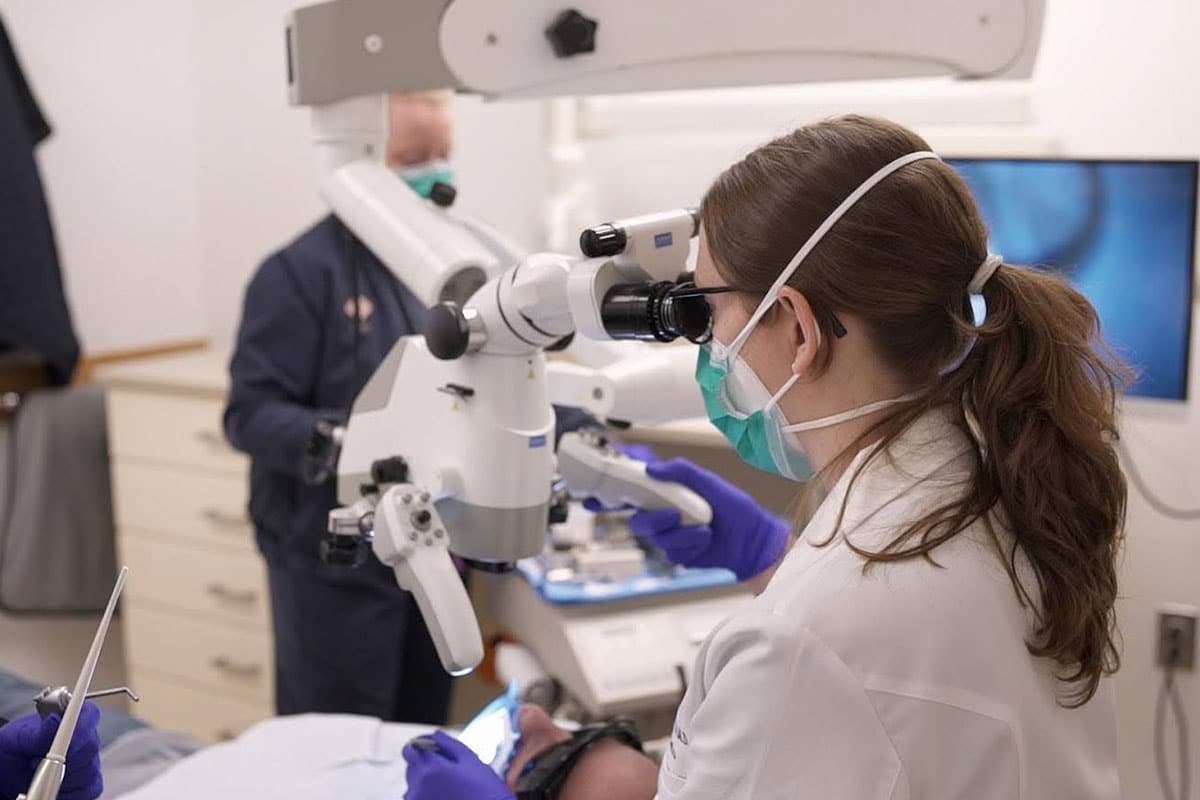
Endodontic Retreatment and Endodontic Microsurgery: Saving Previously Treated Teeth
At Perry Endodontics, our mission is to help our patients preserve their natural teeth whenever possible. While root canal therapy is highly effective, there are instances where a previously treated tooth may require further care to maintain its health and function. Endodontic retreatment and endodontic microsurgery are advanced procedures that provide an opportunity to save these teeth, ensuring long-term oral health and avoiding the need for extraction.
What Is Endodontic Retreatment?
Endodontic retreatment involves reopening a tooth that has already undergone root canal therapy. This procedure is necessary when issues arise after the initial treatment, such as reinfection or persistent discomfort. During retreatment, the endodontist:
- Removes the existing filling material.
- Thoroughly cleans the root canal system.
- Addresses untreated or newly discovered anatomy, such as calcified or missed canals.
- Refills and reseals the tooth to prevent future complications.
Endodontic retreatment restores the tooth's health, allowing it to continue functioning and supporting your natural smile.
What Is Endodontic Microsurgery?
Endodontic microsurgery is used to treat complex cases that cannot be resolved with nonsurgical retreatment. The most common surgical procedure is an apicoectomy, which involves:
- Accessing the tip of the tooth’s root to remove infection or inflammation.
- Cleaning the affected area and sealing the root to prevent reinfection.
- Resolving persistent extraradicular infections or cysts that cannot be treated nonsurgically.
Endodontic microsurgery is typically recommended when there is infection beyond the root, anatomical challenges, or other factors that compromise the success of nonsurgical treatment.
Benefits of Endodontic Retreatment and Endodontic Microsurgery
- Preservation of Natural Teeth: These procedures help save teeth that might otherwise require extraction, maintaining your natural smile and facial structure.
- Minimally Invasive Options: Endodontic Retreatment and modern surgical techniques are designed to be as minimally invasive as possible, promoting faster recovery and excellent outcomes.
- Resolution of Complex Issues: Persistent infections, cysts, and challenging anatomy can be effectively addressed, ensuring the long-term health of the affected tooth.
Frequently Asked Questions About Endodontic Retreatment and Endodontic Microsurgery
Why might a tooth require endodontic retreatment?
A tooth may need retreatment due to persistent infection, unresolved discomfort, or new infection or damage to the root canal system. Sometimes, complex anatomy or calcified canals may have been missed during the initial procedure.
Why would a tooth require endodontic microsurgery?
Endodontic microsurgery may be needed when nonsurgical retreatment is insufficient to resolve the problem. Common reasons include persistent extraradicular infection, cyst formation, or anatomical challenges that prevent effective nonsurgical treatment. Microsurgery allows the endodontist to access and treat these issues directly, preserving the tooth.
Is retreatment painful?
No, retreatment is performed under local anesthesia, ensuring a comfortable experience. Patients may experience some tenderness afterward, which can be managed with over-the-counter non-steroidal anti-inflammatory medications or analgesics like Advil or Tylenol.
How long does it take to recover from endodontic microsurgery?
Initial recovery from endodontic microsurgery typically takes a few days to a week, with soft tissue healing continuing over the following weeks. Complete bone healing may take several months.
Will insurance cover retreatment or endodontic microsurgery?
Most dental insurance plans cover these procedures, though coverage varies by plan. We recommend contacting your provider to confirm specific benefits.
What are the success rates for retreatment and endodontic microsurgery?
Both procedures have high success rates, often exceeding 90%. Prompt treatment and proper follow-up care significantly improve the chances of a successful outcome.
Can all teeth be saved with retreatment or microsurgery?
While many teeth can be saved through retreatment or microsurgery, some may be too damaged to restore. During your consultation, our endodontists will assess your case and recommend the best course of action.
Choose Perry Endodontics for Expert Care
At Perry Endodontics, we specialize in advanced treatments like endodontic retreatment and endodontic microsurgery to save natural teeth. Our board-certified endodontists are equipped with state-of-the-art technology and extensive expertise to handle even the most complex cases.
If you are experiencing issues with a previously treated tooth or have been advised to consider retreatment or microsurgery, contact Perry Endodontics today. Our team is here to provide solutions that preserve your natural smile and support your long-term oral health.
